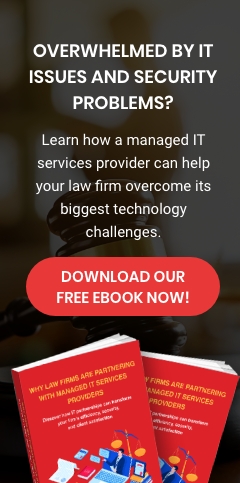Today’s internet speeds might be faster than we would have imagined just a few years ago, but that doesn’t mean bandwidth problems don’t still occur on occasion. Even the fastest corporate networks can slow down to a crawl due to one misconfiguration or because of a cyberattack.
Now that businesses are so reliant on fast Internet and the cloud-hosted services that are available because of it, it’s especially important to take every possible step to optimize your wireless network for maximum security, speed, and reliability.
Here are five tips to help you design and built the perfect wireless network.
#1. Prioritize Bandwidth
It won’t take long for your network to slow down to a snail’s pace if you have just one poorly optimized app hogging all the available bandwidth. When that happens, mission-critical apps such as VoIP or CRM can become unresponsive, leaving employees staring at error messages and loading screens.
All corporate wireless networks need a way for administrators to prioritize bandwidth so that mission-critical applications have enough to function efficiently. It will eliminate situations in which streaming video and other high-bandwidth services hog network resources.
#2. Network Extenders
You might have pretty nice WiFi in your office, but wireless signals lose their strength within a few meters of the router if there are walls or floors in the way, or interference from other devices.
Network extenders give your WiFi more range by increasing the strength of your router’s signal, and they’re easy to implement. But, to maximize their reliability, you’ll want to ensure that they all use the current IEEE 802.11n standard.
You can also extend the range of your network using powerline networking, which uses the existing electrical infrastructure in your office to extend wireless ranges.
#3. Regular Audits
Technology that was new just a few months ago might be slowing down your network today. In fact, even something as apparently innocuous as an outdated router can greatly reduce the speed, reliability, and security of your network and prevent it from operating to the standard you need for your employees to do their jobs.
Regular network audits help keep your technology up to date when it comes to security and performance. By giving you complete visibility into your networking equipment you’ll be able to serve customers according to the SLAs agreed to in their contracts.
#4. Traffic Filtering
Prioritizing network traffic is a great way to ensure certain applications don’t hog bandwidth, but you’ll also need a way to filter out traffic that could harm your network. Spam email and distributed denial-of-service attacks (DDOS) can bring your network down for prolonged periods if you don’t have controls in place to proactively guard against them.
Spam filtering tools and DDOS protection help keep the network running optimally by rejecting junk content and suspicious requests while also boosting security.
#5. Virtual Private Networking
Protecting data in transit is critical for preventing costly data leaks and staying compliant with industry regulations. A compromised or unsecured network can leave your internet traffic exposed to man-in-the-middle attacks in which a hacker intercepts and alters communications between two trusting parties.
These are an especially common problem with businesses that have multiple branch offices or a mobile workforce whereby employees routinely connect to corporate computing resources through third-party networks, such as the public WiFi at Starbucks.
Implementing something called a VPN (Virtual Private Network) reroutes all internet traffic through a secure, off-site server to protect your anonymity and encrypt all outgoing data, regardless of which wireless network your employees are connecting through.
USWired helps businesses in the areas of San Jose and the greater San Francisco Bay Area build more secure, more reliable and faster networks that improve operational efficiency while maximizing security. Call us today to get your compilatory consultation.


